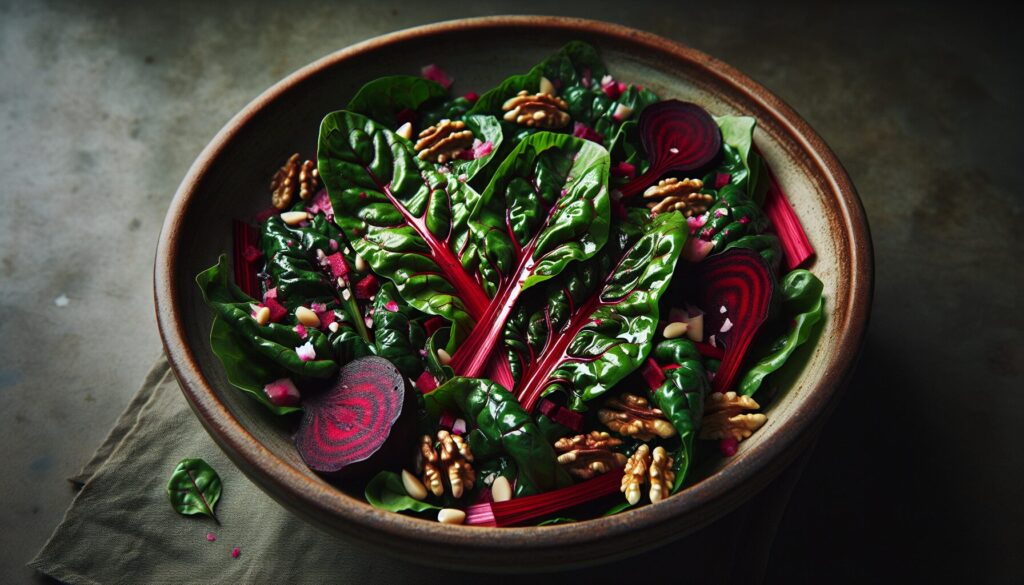
Swiss Chard Health Benefits : How Healthy Is Swiss Chard
Swiss chard is a healthy food that is rich in various essential nutrients that could provide us with many different health benefits. Research shows that Swiss chard leaves have high amounts of potassium and magnesium. These are two minerals which are lacking in more acidic modern diets. Swiss chard is also rich in some vitamins like vitamin K or vitamin C.
The leaves of Swiss chard are a source of many different bioactive plant compounds with possible health promoting benefits. This includes antioxidant pigments and phenolics which you find specifically within Swiss chard.
Some green leaves are toxic or contain deterrents like spikes but Swiss chard leaves are very edible. Swiss chard is a very close relative of beet greens or beetroot and share similar looking leaves. They can be included together in a healthy microgreens and nut salad for example.
If you would like to read about the possible health benefits of regularly eating beet greens or beetroot leaves then you can do so in the link below.
Swiss chard shares a similar antioxidant strength to beet greens. The regular consumption of antioxidant rich foods is thought to be preventative of many chronic inflammatory diseases. The leaves of Swiss chard may be healthy for us as they could prevent diseases such as cardiovascular disease and cancer. Swiss chard may also contain natural antifungals and antibacterial compounds.
In this article the possible health benefits of eating Swiss chard and their nutrient contents are considered to confirm how healthy this foods is for us.

Swiss Chard Nutrient Contents And Health Benefits
Swiss chard could be considered to be healthy because of a rich nutritional content. This relative of beet greens or sugar beet contains high amounts of beta carotene and zeaxanthin which are strong antioxidants.
Antioxidants are considered to offer possible health benefits because of their ability to reduce risks of some chronic diseases. The leaves of Swiss chard are a traditional remedy for some kidney and liver diseases. They are also used as an immune system stimulant. Current research suggests that Swiss chard has a nutritional profile suitable to include in modern diets.
The nutritional contents of Swiss chard are listed below as amount of nutrient per 100 grams. This gives you an idea of the nutrient density of Swiss chard and why this food is worthwhile including in your diet or why Swiss chard could provide health benefits.
Vitamin K
One of the most nutrient dense vitamins found in Swiss chard leaves is vitamin K. There is thought to be around 830µg of vitamin K within Swiss chard leaves. This is nearly double the amount found in beet greens. Our RDA is thought to be 120µg of vitamin K a day. Swiss chard should therefore be considered as an incredible source of vitamin K.
Vitamin K is a fat soluble vitamin. Phylloquinone or vitamin K is important for our health as part of wound healing and blood clotting. Swiss chard could be healthy for us through improving vitamin K status and may have health benefits in assisting with optimal wound healing.
Vitamin C
There is a very substantial amount of vitamin C in Swiss chard leaves. Research estimates that there is 30mg of vitamin C per 100 grams of Swiss chard and is similar to beet greens. Your RDA for vitamin C is thought to be 90mg. Swiss chard therefore offers a significant amount of dietary vitamin C and is a healthy source of this vitamin.
Vitamin C is very influential on our wellness. This water soluble vitamin prevents oxidative stress build ups within the body on a day to day basis. Chronic oxidative stress leads to excess inflammation and this could also cause damage within the body. Chronic inflammation also leads to chronic diseases and chronic oxidative stress causes cell ageing.
Vitamin C is able to cleanse the cells of oxidative stress and is preventative of these health outcomes. This vitamin may also support healthy collagen production and could reduce appearance of skin aging. This vitamin is really important for optimal wound healing and immune system functioning. Research suggests that vitamin C is also a cancer preventative vitamin.
Swiss chard leaves have been shown to possess a very potent antioxidant capacity and this is due to antioxidants like vitamin C that can be found in Swiss chard.
Regularly eating Swiss chard may be healthy or provide health benefits in reducing risk of some diseases because of improved vitamin C levels.
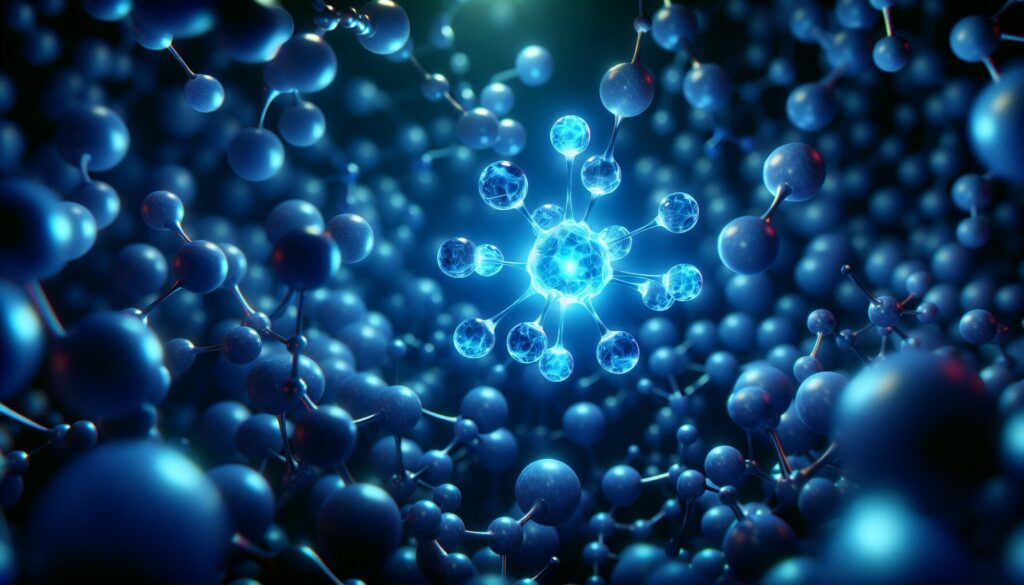
Vitamin A
The RDA for vitamin A and retinoic acid equivalents is 900µg. Swiss chard provides 306µg of vitamin A and retinoic acid equivalents per 100 grams. Swiss chard could contribute significantly to our daily vitamin A requirements and provide a healthy source of this vitamin.
Vitamin A is an essential antioxidant which supports optimal eye health. Vitamin A sufficiency also supports optimal fertility in men and women. This vitamin could also support optimal brain functioning and development via antioxidant protection.
You can read our articles on the benefits of vitamin A for brain health and male fertility here.
Regularly eating Swiss chard could provide potential health benefits or support our health via protecting fertility and eye health as a healthy source of vitamin A.
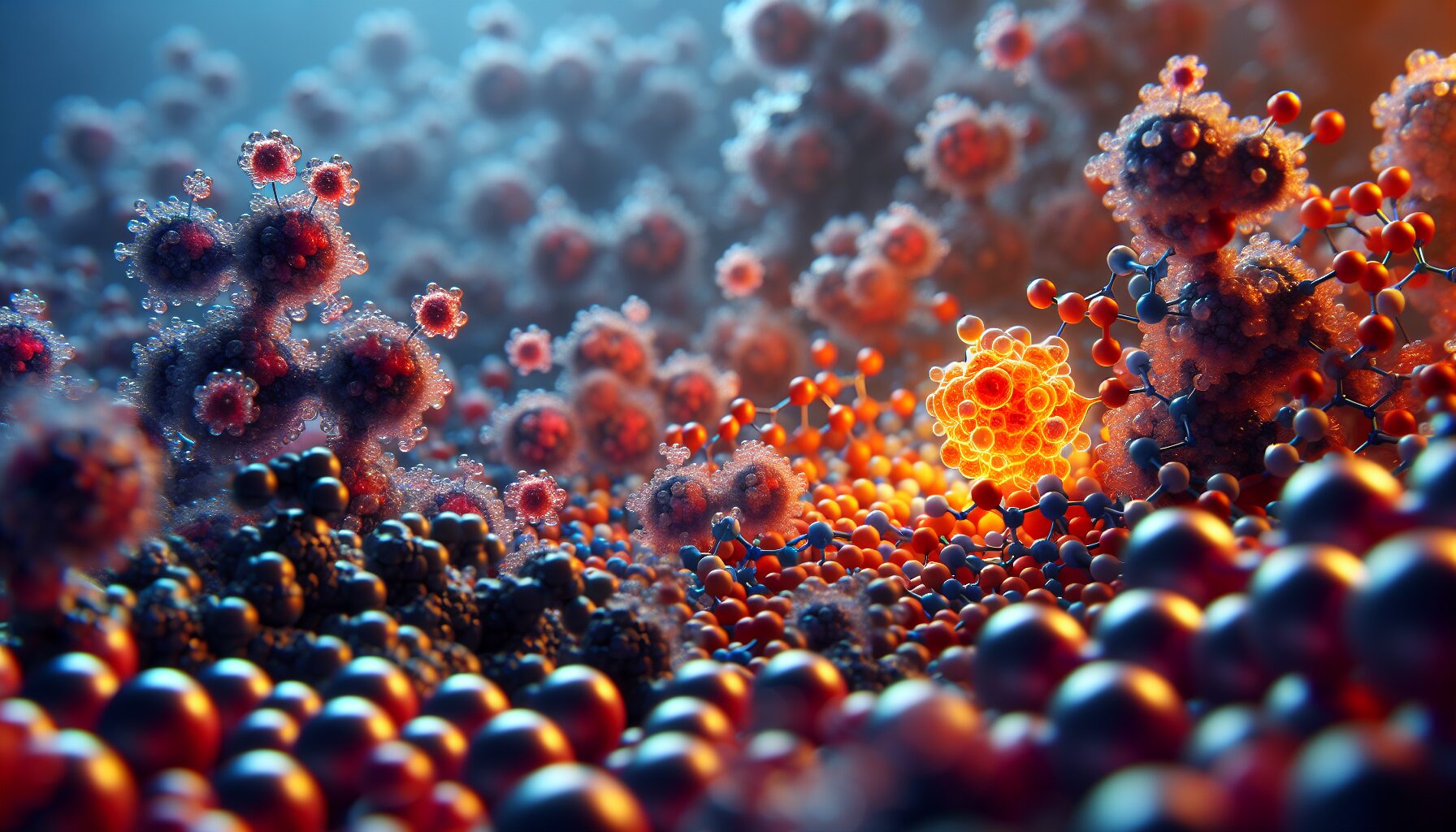
Beta Carotene
Swiss chard leaves contain a comparable amount of beta carotene to beet greens and offer a healthy source of this vitamin A form. There is an RDA for vitamin A but not for beta carotene. There is thought to be 3650µg of beta carotene within the leaves of Swiss chard.
Beta carotene is a natural antioxidant that is able to convert into useable vitamin A. This compound is like vitamin C in a similar ability to cleanse the body of free radicals that can cause systemic inflammation. Beta carotene protects cells from DNA damage which is preventative of cancer. This antioxidant may also be an immunostimulant that promotes the production of natural killer cells and lymphocytes.
Regularly consuming Swiss chard will naturally elevate levels of beta carotene and could therefore provide health benefits in supporting healthy cellular conditions throughout the body.
Alpha Carotene
Swiss chard also contains some alpha carotene. Alpha carotene is not an essential nutrient but adds to the total carotenoid content of Swiss chard as part of the carotenoid family. There is thought to be around 45µg of alpha carotene within Swiss chard.
This compound has similar antioxidant activities to beta carotene and can form retinol or vitamin A. Alpha carotene is thought to protect the body from accumulated oxidative stress and risk of cancer due to carotenoid specific antioxidant activity. They are thought to protect fatty acids from oxidative stress damage caused by free radicals. Alpha carotene and beta carotene may associate with LDL to protect cardiovascular health.
Just like vitamin A alpha carotene could influence immunity and the activation of enzymes which remove carcinogenic toxins.
Zeaxanthin And Lutein
The carotenoid family pigments zeaxanthin and lutein are both found in very high concentrations within Swiss chard. There is an estimated 11,000µg of zeaxanthin and lutein within Swiss chard.
These carotenoid family compounds share many similar properties. They are both fat soluble nutrients. They are also very strong antioxidants. Humans can’t produce zeaxanthin or lutein. These carotenoid pigments both accumulate in the skin and eyes.
The potential health benefits of zeaxanthin and lutein centre around antioxidant qualities. These carotenoids can provide intense protection from light or UV damage to the body or eyes. Some studies also suggest that zeaxanthin could be reduce the oxidative stress that influences some neurological conditions. Zeaxanthin may have preventative health benefits against the risks of developing cancer.
Lutein and zeaxanthin are both thought to play roles in the prevention of age related eye diseases. This includes macular degeneration or cataracts. Lutein may improve eye macula density and could also protect some areas of the brain from oxidative stress. Research suggests that lutein could improve memory and reasoning.
Both Lutein and zeaxanthin have also been shown to protect the activity of brown adipose tissues or brown fat. They are able to do this via simultaneously stimulating mitochondrial growth and preservation of the mitochondria.
Betaine
There is estimated to be 0.3mg of betaine in Swiss chard per 100 grams. Betaine is formed from choline and is also bioavailable in our diet. Betaine is thought to have strong antioxidant properties that enable the body to be protected from oxidative stress. Research has found that this protective effect is strong within the liver.
Dietary betaine may also improve vitamin A and glutathione antioxidant levels. There is no recommended daily intake amount for betaine but this is another example of the nutritional support offered by Swiss chard.
Betaine is one of the various carotenoids which play a massive role in the possible health benefits of eating Swiss chard. They form a crucial reason why Swiss chard leaves are so healthy.

Swiss Chard Phenolics
Swiss chard is a source of various bioactive compounds. These include myricitrin, vitexin, p coumaric acid and rosmarinic acid. Myricitrin is a plant flavonoid which may have some antioxidant capacity. P coumaric acid is a phenolic acid that may also have antioxidant capabilities.
Studies suggest that rosmarinic acid may be a very dominant compound in this plant. Rosmarinic acid is a strong antioxidant compound that has been linked to the possible stimulation of hair growth from rosemary extracts. You can also find vitexin in beet greens. This is an antioxidant flavonoid glycoside with tumor preventative properties and may also assist with wound healing.
The leaves of Swiss chard seem to have a mild antimicrobial activity against some pathogenic microbes as well. P coumaric acid seems to possess some antifungal properties which adds to the antipathogen potential of Swiss chard.
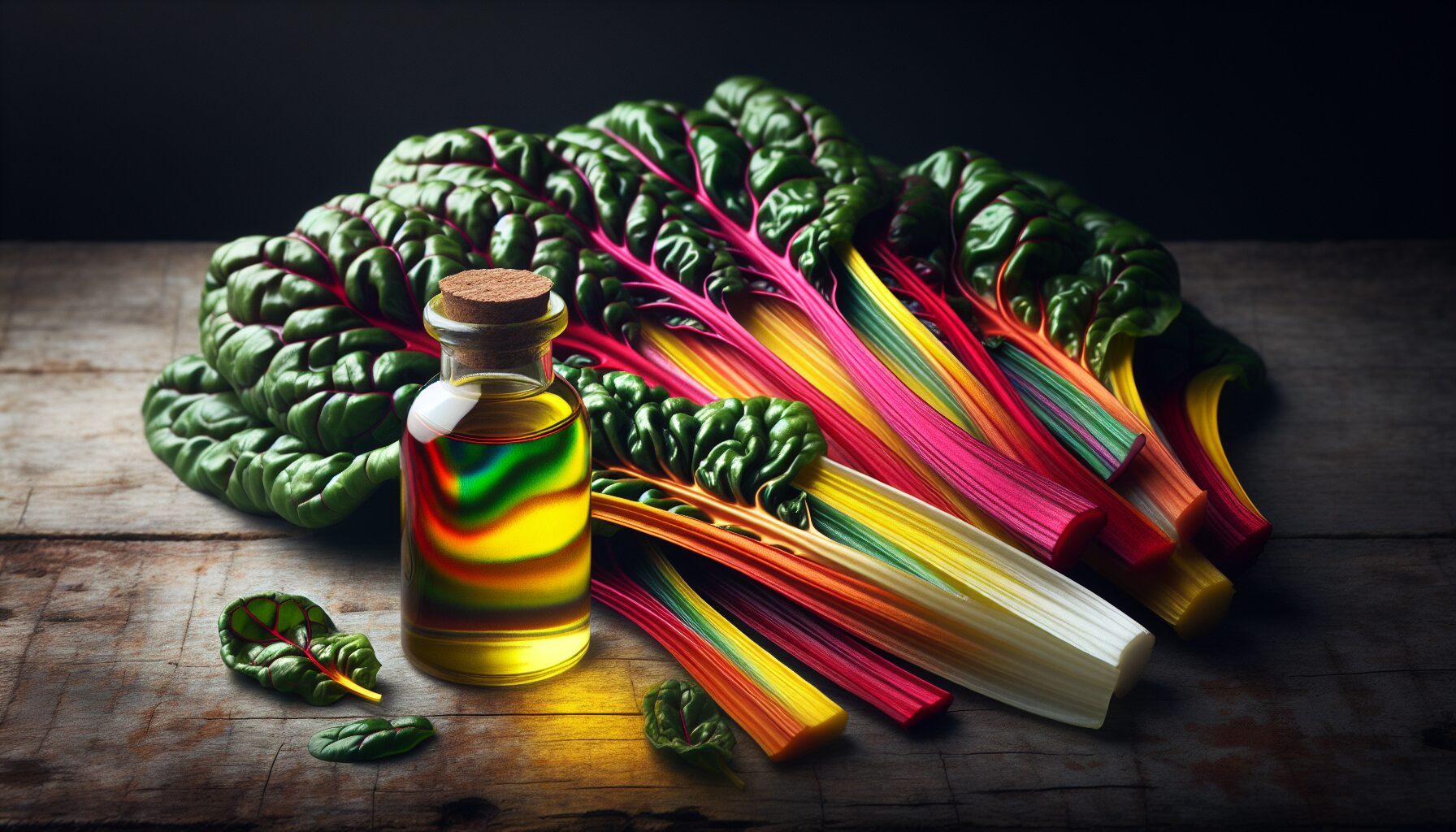
Swiss Chard Minerals
An adequate intake of minerals is essential for our wellbeing and Swiss chard is thought to be a really healthy source of these.
Manganese
Swiss chard leaves are believed to be a healthy source of manganese. In Swiss chard leaves there is about 0.366mg of manganese per 100 grams. Our RDA for manganese is 2.3mg. Swiss chard could support a significant portion of our required manganese intake per day as part of a healthy diet.
Manganese is important for our overall metabolism and support healthy blood glucose levels. This mineral also influences growth and the production of some hormones. Manganese is also important for the production of the antioxidant enzyme superoxide dismutase. Current research supports manganese as being supportive of improved athletic performance.
As a source of manganese Swiss chard may contribute to healthy energy production and prevention of antioxidant damage.
Magnesium
Another mineral which you could find in a high nutrient density within Swiss chard is magnesium and could be considered to be a healthy source of this mineral. There is thought to be around 81mg of magnesium per 100 grams of Swiss chard leaves. The RDA for magnesium is 420mg. Swiss chard therefore offers a significant contribution to our magnesium intake.
Magnesium is a very important nutrient for the body. Mineral magnesium supports healthy energy and DNA production in the body. Magnesium also regulates the production of nerve transmitters such as serotonin. This mineral is an essential electrolyte required for healthy muscle relaxation.
Some additional health benefits of eating Swiss chard may therefore be the support of healthy neuromuscular functioning through magnesium intake.
Potassium
Swiss chard is a source of the electrolyte mineral potassium. You can obtain 379mg of potassium per 100 grams of Swiss chard. Our recommended intake of potassium is about 4,700mg of potassium per day.
Potassium is an essential electrolyte which supports healthy muscular movements and nerve transmission. Elevated potassium levels are also linked with a highly reduced risk of strokes.
Regularly eating Swiss chard could be considered to be a healthy source of potassium which contributes significantly to our recommended intake of potassium.
Sodium
Swiss chard contributes to healthy levels of sodium in the body. The leaves of Swiss chard contain 213mg of sodium per 100 grams. Sodium has a bad reputation in excess but sodium is an essential electrolyte within the body. Sodium is used in the regulation of water retention and optimal neuromuscular functioning. Swiss chard seems to have a healthy balance of potassium to sodium too.
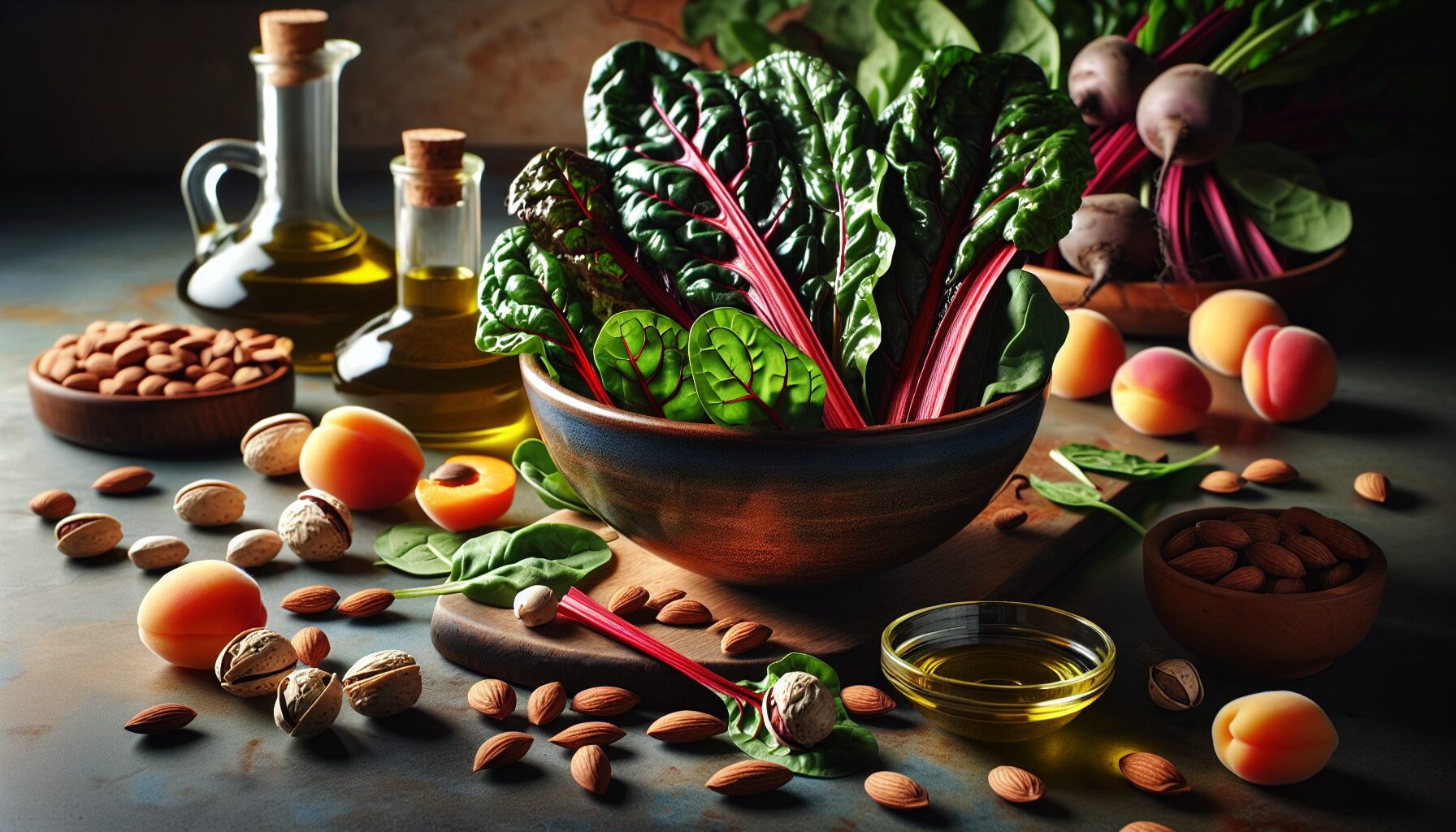
Dietary Fibre
Dietary fibre forms a large part of Swiss chard. This is a characteristic shared by most green leafy vegetables. Healthy amounts of dietary fibre are essential to supporting optimal gut health. Swiss chard is thought to contain 1.6g of dietary fibre per 100 grams.
Most of this comes in the form of cellulose. Dietary fibre is essentially beta glucose chains or complex carbohydrates. Our gut microbes digest these and thrive on them. Humans can’t really digest dietary fibres like cellulose.
Dietary fibre is a prebiotic and can support our health promoting gut bacteria. Accumulations of pathogenic bacteria can cause systemic inflammation which has the potential to influence our health. They can disturb balances within our body that effect our skin. This could lead to inflammatory skin conditions. Some microbes can cause acne from skin sebum production.
Beneficial gut bacteria can improve immune responses and lower inflammation in the gut. Some gut microbes may also support improved brain health.
Overall Swiss chard is a nutritionally dense food that could be considered to be a healthy addition to our diet and may provide health benefits such as eye health or fertility support.
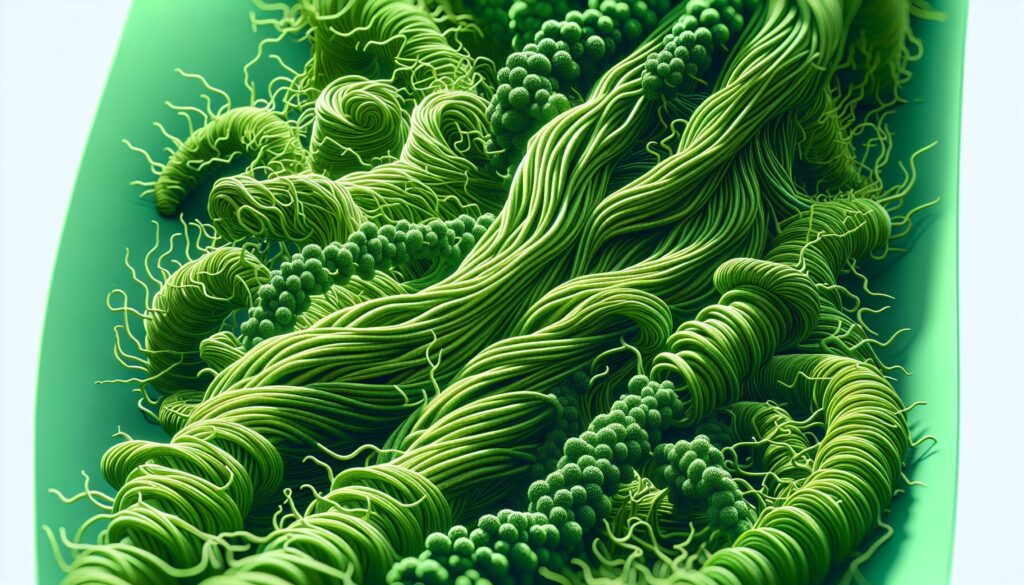
Summary
Swiss chard is a healthy vegetable that offers nutrient support and may have various health benefits. Swiss chard is a close relative of beet greens or beetroot leaf.
The rich nutrient profile of Swiss chard emphasises why this leafy vegetable deserves an inclusion in a modern diet. The leaves of Swiss chard would make a nice addition in a salad for example.
Swiss chard has a strong antioxidant capacity which is most likely due to a high quantity of natural plant antioxidants. Swiss chard is a traditional remedy for kidney and liver diseases. The leaves of Swiss chard contain high amounts of vitamin C and vitamin A which contribute to the reduction of oxidative stress within the body.
There is a strong carotenoid family profile in Swiss chard. These have antioxidant activities and add to the possible health promoting benefits of eating Swiss chard. Beta carotene may reduce oxidative damage to DNA. The antioxidant pigments lutein and zeaxanthin may protect the eyes and brain from oxidative stress damage. Antioxidant bioactive compounds such as vitexin and rosmarinic acid may add to the strong antioxidant capacity of Swiss chard leaves.
Vitamin K is present in large amounts in Swiss chard leaves too and this vitamin is very important for wound healing. Swiss chard is one of the most nutrient dense foods for vitamin K.
Swiss chard is a source of minerals such as manganese and magnesium which support optimal energy production within the body. Electrolytic minerals such as potassium and sodium also support neuromuscular functioning.
Overall Swiss chard is a highly nutritionally dense food and should be considered to be a healthy addition to our diet that could offer potential health benefits.
For more interesting articles see the main articles page below.





